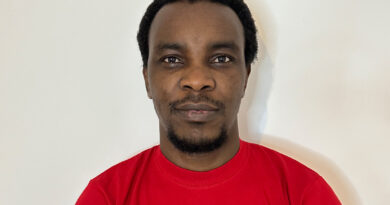Part 2: Interview Series with Digital Book Platforms Founders in Africa –Lorato Trok, Director of Nal’ibali, South Africa
This is the second part of our five-part “Conversation Series” with African digital founders innovating in publishing. Our second conversation is with Lorato Trok, Director of Nal’ibali, South Africa’s biggest literacy promotion organisation that nurtures and strengthens reading culture in children.
What unique features set your digital book space apart from other platforms in the literary world?
Nal’ibali (isiXhosa for “here’s the story”) is a national reading-for-enjoyment campaign to embed a culture of reading in children from birth to 12 years of age across South Africa in all South African languages. Nal’ibali promotes the use of home languages as it is transparent, easy to learn and the first language that children use to socialise and make sense of the world around them. Nal’ibali is South Africa’s biggest literacy promotion organisation. Although we are not wholly digital, our platform sets us apart with other literary spaces as it addresses the technical issues experienced by rural communities by partnering with the South Africa Post Office to deliver our much-loved supplement to schools, homes and Early Childhood Development centres across small towns and rural communities. Our platform content is also made available in eleven official South African languages, nine of which are indigenous African languages.
Could you share how your platform collaborates with publishers and what advantages publishers gain from working with you?
There is only a handful of trade or commercial publishers in South Africa dedicated to the publishing of children’s literature, and as our platform is about children’s literature, we have consistently collaborated with these publishers to get their children’s stories published on our supplements. In this way, children’s stories from publishers’ get published in our bi-monthly supplement. Our supplement distribution for 2024 currently stands at 1.8 million and another 1 million users who download our supplements, stories and other online resources.
When curating content for your platform, what factors guide your selection process?
Our mandate is to promote reading for enjoyment for children in their home languages. Our content is geared towards children enjoying stories in their home languages and caregivers/parents, teachers taking pride in reading and telling stories in African languages. We ensure that our content reflects the lived experiences of children and their communities by commissioning content from local content creators.
Maintaining content quality is crucial. How do you verify the authenticity and quality of the books featured on your platform?
We commission established and new authors to write stories for our supplement and our online platform. The stories are vetted for authenticity and intellectual property checks. Our authors sign contracts with clauses indicating that their stories are original. The stories and all content go through a rigorous process of editing to meet our editorial standards before publishing them.
Could you elaborate on the support services or tools you offer to authors and publishers within your ecosystem?
We offer financial incentives to authors, translators, editors, proofreaders, designers, illustrators, publishers, etc. We have contributed to the creative industry and the country’s book chain immensely. Our authors have gone on to do bigger things through their allegiance with our trusted brand.
In terms of author development, how do you assist writers in growing their readership and establishing their brand?
We use our supplement and our online platforms to interview authors and feature their work. Through our partnership with the SABC (South African Broadcasting Corporation), our stories are broadcast twice a week on 12 radio stations in 11 official languages with a reach of 8 million listeners weekly. This gives our authors free airtime on their work and a bigger reach across the country than what traditional publishing would do for their brand and work. Before their stories are published, we commission an over writer to shape their stories in a professional way before they are sent to the SABC and published on our platforms. The SABC also employs scriptwriters to develop the stories for radio. The SABC facilitates writers’ workshops for our authors on how to write stories for radio. Also see above.
Can you tell us about any specific publishing services or collaborative opportunities you extend to authors?
Some of our authors were discovered through our platforms and were given publishing opportunities by established publishing houses.
Ensuring fair treatment for authors and publishers is crucial. How do you safeguard their rights and manage royalties?
We do not work on a royalty basis for our authors. We are an NGO and not a commercial publisher. We pay one off fees to authors and content creators and do not re-use their stories/content without their written permission. Publishers, though, do offer them royalties when they sign them on. Their rights are protected.
Could you outline the various revenue models your platform employs, such as commissions or subscription-based models?
Our platform is wholly donor funded and requires us to deliver services to the constituents for free. Except for our donate button on our website.
From your perspective, how does your platform contribute to the evolution of African literature and its impact?
Our platform contributes to the growth of African languages in children’s literacy in the country and Southern Africa by virtue of our cross-border languages. Children’s literature is not given the platform and prestige that it should across the continent, so we are in a privileged platform of amplifying the importance of children’s literature and early literacy in general. Through our family literacy initiatives, we advocate for parental involvement in children’s education, including our flagship Men’s Literacy Imbizo, where through training, men are urged to take much more responsibility in being active members of society in literacy promotion initiatives in their communities and in their children’s lives.



